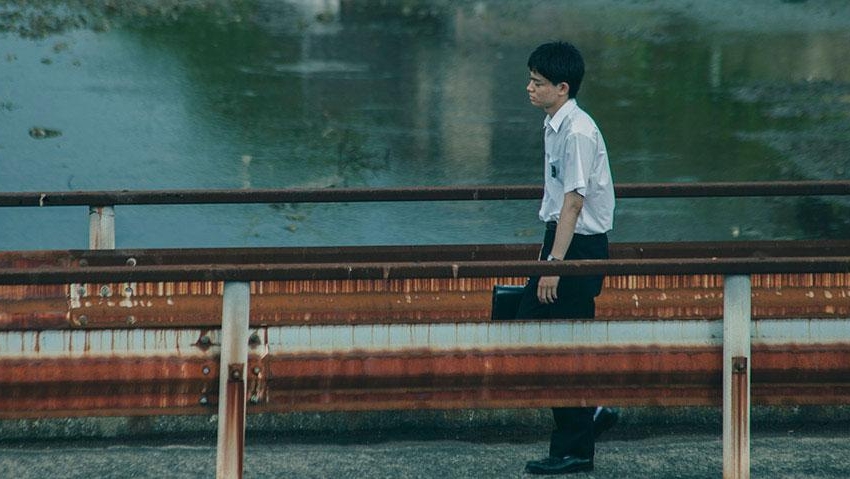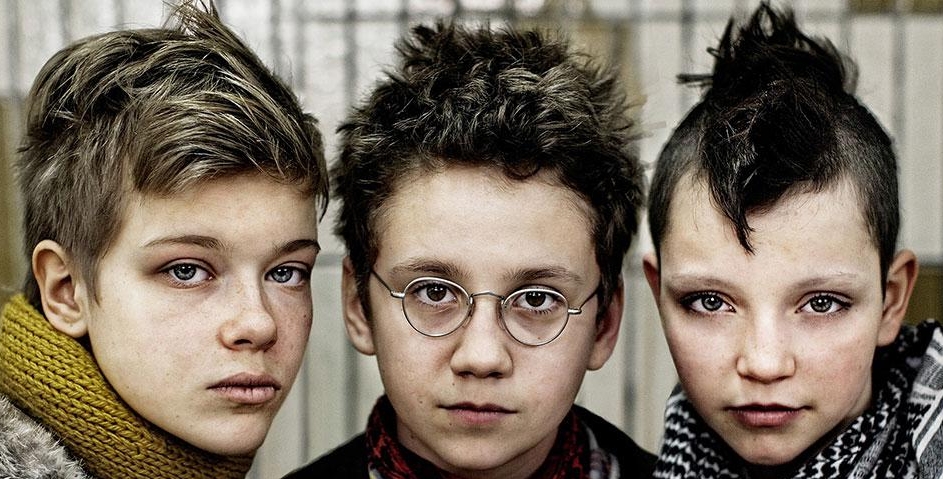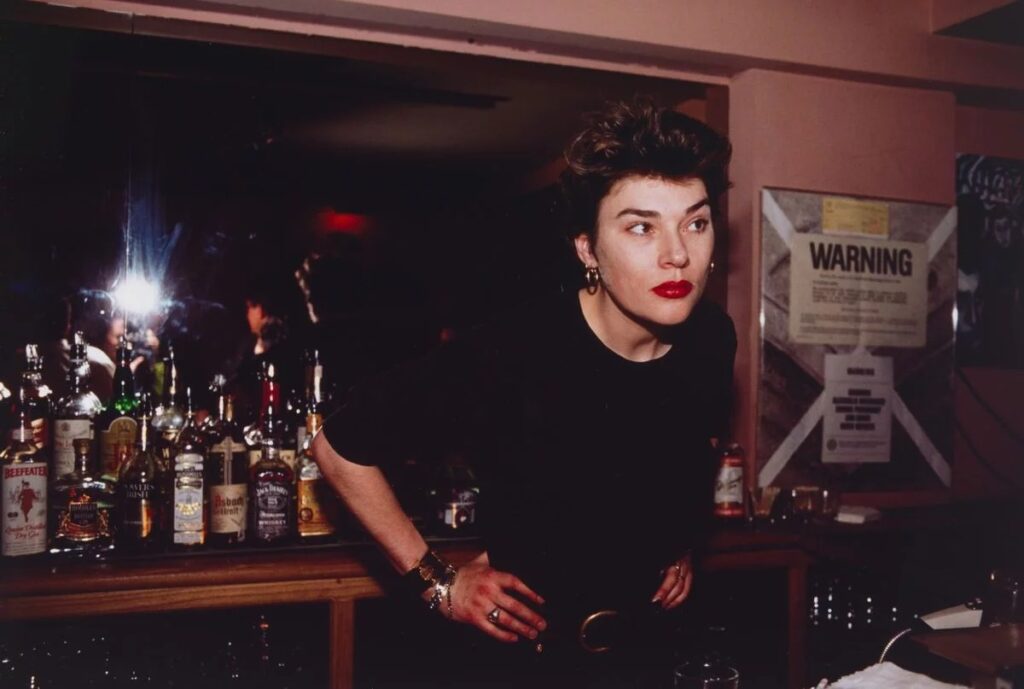Elements of director Shinji Aoyama’s latest film are like the polluted river that runs through a riverside suburb of Shimonoseki, the titular ‘backwater’ – it’s grimy, unsavoury and likely to leave you feeling dirty after dipping in it. Based on a prize-winning novel, Backwater attempts to deal seriously with dark themes but is hobbled by the very nature of its execution.
At first, it appears to be a coming of age story. Toma (Masaki Suda, familiar to Kamen Rider fans) is a moody student, living with his father (Ken Mitsuishi) by the riverside. His steely fish-selling mother (Yuko Tanaka), long separated from Toma’s dad, works on the other side of the river. Has a parasol-carrying girlfriend (Misaki Kinoshita), who meets him in the local shrine for illicit hook-ups. Nothing too untoward there. The problem is, Toma fears he might have inherited his dad’s predilection for sadistic sexual practices – graphically depicted in a scene with his father’s mistress (Yukiko Shinohara).
A drama then plays out that seems to critique the misogyny depicted, but struggles to rise above the way the scenes themselves are presented. The answer to this tension lies in the pop-cultural material Aoyama draws upon as a foundation for this uncomfortably lurid drama. Those without knowledge of Nikkatsu Studios’ ‘Roman Porno’ genre of low-budget dramas from the ‘70s and ‘80s, often featuring softcore S&M scenes, will find it hard to establish an anchor point for some of Backwater’s more challenging moments.
Ultimately the film is critical of the subjugation of women, subverting the tropes of the Roman Porno genre and ensuring that Toma’s father – a symbol for the maculinist war-generation – gets his karmic reward, but it’s a bumpy ride getting there. Suda is out-acted by every female cast member and rarely generates any empathy for his situation, and the look of the film itself is as river-bottom brown as water running through the town. Students of Japanese film culture and admirers of the novel will likely get the most out of this adaptation, but casual viewers might find themselves nonplussed.
BY CHRIS HARMS







